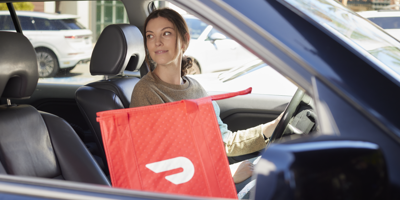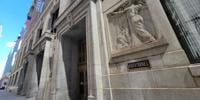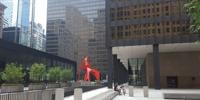
DoorDash
CHICAGO - DoorDash will pay $18 million to settle a lawsuit brought by Chicago City Hall, which accused the food delivery app service operator of business practices that city officials alleged misled restaurant operators, customers and DoorDash's delivery "dashers."
The settlement was announced by the city on Nov. 14, and confirmed by DoorDash.
The city of Chicago had filed suit against DoorDash in 2021 in Chicago federal court under then-Mayor Lori Lightfoot.
The city said the lawsuit came as part of an investigation of alleged misleading business practices on the part of DoorDash and other food delivery app operators.
The lawsuit accused DoorDash of several "deceptive practices." These allegedly included:
- Listing restaurants on their app without the restaurants' consent;
- Adding a so-called "Chicago Fee" to the final cost of food orders completed from restaurants in the city, even though the fee did not cover any kind of additional tax or fee imposed by the city;
- Not presenting the full final cost of the food and delivery to customers up front;
- Not telling customers that menu costs on DoorDash were likely higher than those they would pay if they ordered from the restaurants directly; and
- Allegedly misleading cutomers into believing they were tipping their "dashers" directly on top of their pay, when DoorDash allegedly claimed the tips to "subsidize its own payment of drivers."
In a statement concerning the settlement, a DoorDash spokesperson said the company ceased any of the alleged "misleading" practices years ago and the company is "glad to put this behind us."
"We’re pleased to have settled a years-old lawsuit with the City of Chicago," said a DoorDash spokesperson in a prepared statement. "To be clear, this settlement isn’t an admission of wrongdoing and the allegations in this lawsuit focus on business practices that no longer exist."
The Record obtained a copy of the settlement agreement.
Under the terms, DoorDash would pay:
- $3.25 million to Chicago restaurants allegedly listed in the past without consent'
- $5.8 million in "delivery commission and marketing credits to eligible restaurants currently on the DoorDash platform;"
- $4 million in "credits, which can be applied to food delivery orders, to eligible Chicago users with active accounts on the platform," beginning Jan. 28, 2026;
- $500,000 to "drivers who who were delivering food orders in Chicago as of September 2019, the last month that DoorDash’s practice of using tips to subsidize driver pay was in effect;" and
- $4.5 million to the city of Chicago and its attorneys.
The city was represented in the action by attorneys from the city's Department of Law, with assistance from the national plaintiffs' law firm of Cohen Milstein Sellers & Toll, of Chicago and Washington, D.C.
The settlement agreement does not indicate how much of the settlement will be paid to lawyers from the Cohen Milstein firm. Such firms typically represent governments in civil lawsuits on a contingency basis. Under such agreements, the firms typically are paid a cut of any settlement or judgment secured by the government agency as a result of the lawsuits.
Typically, such contingency fees land around 15%-25%, based on The Record's review of other agreements between local governments and such trial lawyers.
A spokesperson for the city's Law Department said the settlement does not require any further approval to be executed.
Chicago Mayor Brandon Johnson praised the resolution of the four-year-long legal action, saying it "demonstrates Chicago’s commitment to standing up for workers and small businesses while maintaining a fair and honest marketplace."
"Our hospitality industry is critical to our economy, and it works best when companies play by the rules, workers are treated fairly, and consumers see transparent pricing," the mayor said in a prepared statement included in a release announcing the settlement.
“Chicagoans deserve transparency, honest service, and confidence that their tips support workers and local business,” said Chicago Corporation Counsel Mary B. Richardson-Lowry, the city's lead attorney. “This settlement affirms those principles.”






